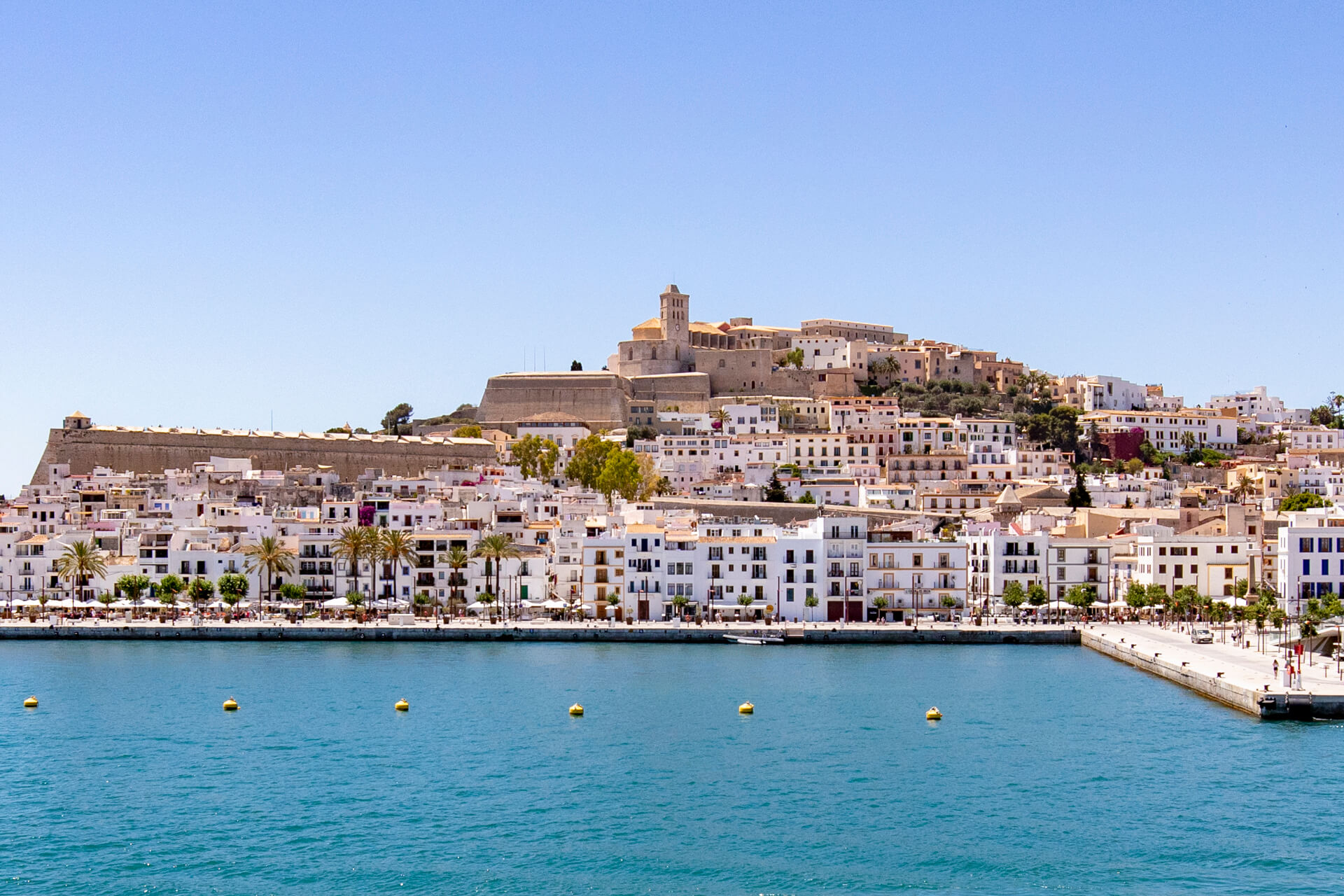First Spanish Words
The perfect start
Discover the Mini Translator for Spanish! Ideal for beginners: Learn the first Spanish words and phrases in a fun way. Simple, quick, and effective - start your language journey today!
Mini Translator



Spanish is one of the most spoken languages in the world and is not only the main language in Spain but also in many Latin American countries. If you're preparing for a trip to one of these countries or simply want to start a new language project, taking the first steps is a great idea. The Mini Interpreter Spanish is an excellent way to learn the first Spanish words in a fun and effective way.
The Mini Interpreter is especially suitable for beginners and offers a user-friendly way to acquire basic language skills. Whether it’s greetings, simple everyday words, or first sentences, the interpreter helps you learn them quickly. It’s a practical device that teaches you the pronunciation of Spanish terms, helping you improve your speaking skills.
What makes the Mini Interpreter special is its simplicity. You don’t have to attend long language courses or struggle with complex grammar rules. Instead, you can learn new words and phrases step by step. Beginners who have never spoken Spanish before can develop a feel for the language in a relaxed and fast way.
Another advantage of the Mini Interpreter is that it helps you practice the correct pronunciation. Especially with a language like Spanish, where emphasis and pronunciation are crucial, this is a big plus. With the Mini Interpreter, you not only learn vocabulary but also how to pronounce it correctly.
Whether for your next trip, for work, or simply out of interest - the Mini Interpreter Spanish is the perfect companion for anyone who wants to start learning Spanish quickly and effectively. Get your own device and dive into the fascinating world of the Spanish language!
| General | General [xeneral] |
| Good day | Buenos días [buenos dias] |
| Good afternoon | Buenas tardes [buenas tardes] |
| Good evening | ¡Buenas noches! [buenas noches] |
| Good night | ¡Buenas noches! [buenas noches] |
| Hello! | ¡Hola! [ola] |
| How are you? | ¿Qué tal? [ke tal] |
| Thank you, good. | Bien, gracias. [bjen graθjas] |
| My name is ... | Me llamo... [me jamo] |
| Goodbye | Adiós [adjos] |
| In the morning | por la mañana [por la manjana] |
| In the afternoon | por la tarde [por la tarde] |
| In the evening | por la tarde [por la tarde] |
| At night | por la noche [por la notsche] |
| Tomorrow | mañana [manjana] |
| Today | hoy [oi] |
| Yesterday | ayer [ajer] |
| Do you speak German / English? | ¿Habla usted alemán / inglés? [abla usted aleman / ingles] |
| Pardon? | ¿Cómo? [komo] |
| I don't understand. | No he entendido. [no e entendido] |
| Please repeat. | Por favor, repítalo. [por fawor repitalo] |
| Please | por favor. [por fawor] |
| Thank you | gracias [gra.jas] |
| Thank you very much | muchas gracias [muchias graθjas] |
| You're welcome | De nada [de nada] |
| what - who - which | qué - quién - cuál [ke - kjen - kual] |
| where - to where | dónde - adónde [donde - adonde] |
| how - how much | cómo / cuánto [komo - kuanto] |
| when / how long | cuándo / cuánto tiempo [kuando / kuanto tjempo] |
| Why? | ¿por qué? [por ke] |
| What is this called? | ¿Cómo se llama esto? [komo ße jama esto] |
| What is your name? | ¿Cómo te llamas? [komo tee jamas] |
| Where is ...? | ¿Dónde está ...? [donde esta...] |
| Can you help me? | ¿Podría usted ayudarme? [podria usted ajudarme] |
| yes - no | sí - no [ßi / no] |
| Excuse me | Perdón [perdon] |
| It doesn't matter | No pasa nada [no paßa nada] |
| Emergencies | Emergencias [emer'xenθia] |
| I need a doctor - dentist. | Necesito un médico - un dentista. [ne.esito un mediko - un dentista] |
| Please call an ambulance - the police. | Por favor, llame una ambulancia - la policía. [por fawor jame una ambulanθja / la poliθia] |
| We had an accident. | Hemos tenido un accidente. [emos tenido un agθidente] |
| I have been robbed. | Me han robado. [me an robado] |
| My car has been broken into. | Me han abierto el coche. [me an abjerto el kotsche] |
| Food and Drink | Comida y bebida [komida i bebida] |
| Water | agua [agua] |
| Mineral water (Selters) | agua con gas [agua kon gas] |
| Still water | agua sin gas [agua ßin gas] |
| Beer | cerveza [θerweθa] |
| Coffee | café [kafe] |
| Coffee with milk | café con leche [kafe kon letsche] |
| .. with sweetener | con acarina [kon sacarina] |
| .. with sugar | con azúcar [kon aθukar] |
| Juice | zumo [θumo] |
| Orange juice | zumo de naranja [θumo de naranxa] |
| Apple juice | zumo de manzana[θumo de manθana] |
| Carrot juice | zumo de zanahoria[θumo de θanaoria] |
| Ice cream | helado [elado] |
| with / without ice cubes | sin - con hielo [ßin - kon jelo] |
| Wine | vino [wino] |
| White / red / rosé | blanco / tinto / rosado [blanko / tinto / roßado] |
| The menu, please. | La carta, por favor. [la karta por fawor]. |
| I want to pay. | La cuenta, por favor. [la kuenta por fawor] |
| It was very good - not so good. | Estaba muy bueno - no tan bueno. [estaba mui bueno - no tan bueno] |
| Bread | pan [pan] |
| Soup | sopa [ßopa] |
| Fish | pescado [peskado] |
| Seafood | mariscos [mariskos] |
| Meat | carne [karne] |
| Poultry | aves [awes] |
| Salad | ensalada [enßalada] |
| Eggs | huevos [uewos] |
| Rice | arroz [arroθ] |
| Potatoes | patatas [patatas] |
| French fries | patatas fritas [patatas fritas] |
The symbol "θ" (Theta) is used in Spanish pronunciation to represent the "th" sound that occurs in some Spanish dialects, particularly in Castilian Spanish. In the example "muchas gracias", the "c" in "gracias" is often pronounced like a "th", resulting in [muˈtʃas ˈɡɾaθjas].
This sound (θ) is typical of the "ceceo" (pronounced like the "th" in the English word "think"), which is found in parts of Spain, especially in Central and Northern Spain. In other regions of Spain or in many Latin American countries, this sound is not used, and instead, a simple "s" is pronounced (thus [muchas gracias] without the "θ").
In short, the "θ" symbol represents the voiceless dental fricative sound, which occurs in certain Spanish dialects.